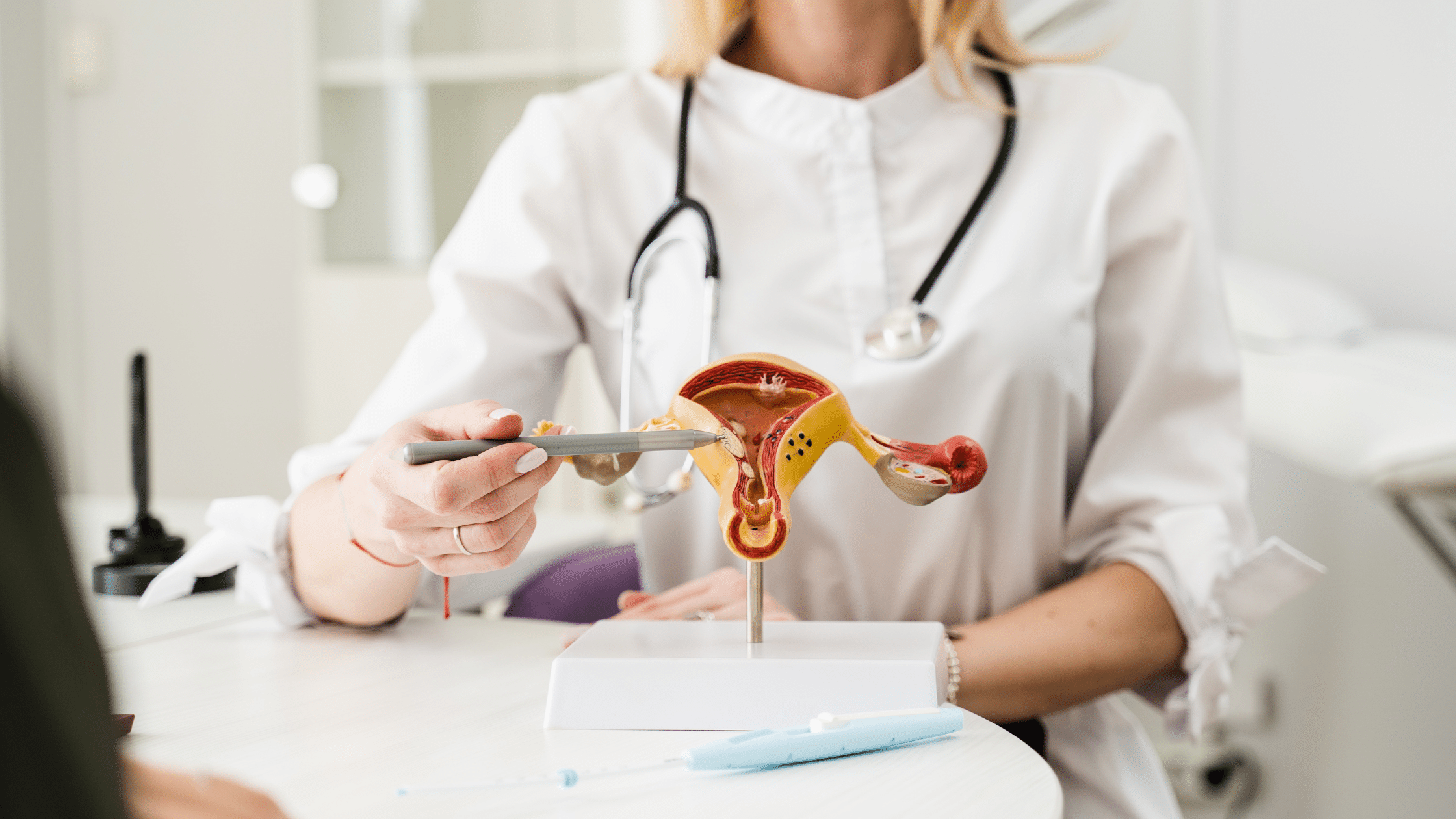Endometriosis affects millions of women across the U.S., yet its exact cause remains unclear. While…

Types of Urinary Incontinence: A Comprehensive Guide
Being a woman is hard. From monthly menstruation, mood swings, and unexplained pelvic pain, there’s no lack of hardship, confusion, and frustration females experience. But you’re not alone with our team in Lake Orion, MI.
At The Endometriosis Treatment Center of America (ETCOA), we’re dedicated to helping women feel their best from the inside out. In this blog, we’re answering your most frequently asked questions about endometriosis, abnormal periods, and other conditions that can sometimes accompany womanhood.
What Is Excision of Endometriosis?
Excision of endometriosis is a minimally-invasive, robotic surgery that can remove painful lesions formed during endometriosis. Since we’re effectively targeting endometriosis, many women experience a significant improvement in their symptoms.
Using the da Vinci Robotic Surgical Team, our team of surgeons can be more precise than ever before. To learn more about relief for your endometriosis, check out our blog, which is all about robotic surgery for endometriosis.
What Constitutes Abnormal Periods?
At ETCOA, we believe you know your body best. Don’t hesitate to seek treatment if you think something is out of the ordinary with your menstrual cycle. But, there are a few tell-tale signs that you may be experiencing an abnormal period and need medical support.
If you are bleeding more or less than usual, go several months without a period, or experience severe pelvic pain, we recommend visiting your local OB/GYN. For more information about abnormal periods, learn more in our blog post.
How Do I Know If I Have Ovarian Cysts?
If you have an ovarian cyst, you may not experience any symptoms at all. Some women only realize they have a cyst once it bursts, which can create painful symptoms of severe abdominal pain, fever, or vomiting.
However, some signs of ovarian cysts include:
- Dull, aching, or sharp pain
- Bloating
- A feeling of fullness
- Cramping
If you are diagnosed with an ovarian cyst, your doctor may have a wait-and-see approach or recommend surgery, depending on the severity of the cysts and your medical history. If you want to learn more about ovarian cysts, read our blog post that explains everything you need to know.
What Causes Endometriosis?
Unfortunately, there’s no definitive cause of endometriosis. However, researchers speculate that genetics, reverse menstruation, transformation of peritoneal cells, or immune system disorder may be a few culprits. Research is ongoing, and many endometriosis specialists are working to find a cause and cure for endometriosis.
If you think you may have endometriosis, don’t hesitate to seek treatment. At ETCOA, we offer personalized, high-quality medical care for those with endometriosis, pelvic pain, and more.
Is There a Treatment for Urinary Incontinence?
Yes! We understand urinary incontinence can be debilitating and will work with you to diagnose and treat urinary incontinence.
At ETCOA, we offer numerous treatments for this condition, including:
- Medications
- Botox injections to your bladder
- Emsella kegel therapy
- Axonics (nerve stimulation)
Your exact treatment plan will depend on your symptoms, the type of urinary incontinence you experience, and your medical history. Once diagnosed, our team will discuss each treatment option with you in-depth and provide a knowledgeable recommendation, so you can get back to living your life to the fullest.
What Causes Painful Urination?
There could be many possible culprits for this uncomfortable condition. For women, urinary tract infections, vaginal infections, and endometriosis are the top three most common causes of painful urination. Many women who experience endometriosis often experience painful urination, but they are separate conditions.
To diagnose painful urination, your doctor may analyze a urine sample, evaluate your symptoms, and ask about your medical history. Once diagnosed, painful urination can often be treated with medication. If you’d like to learn more about the common causes of painful urination, check out our blog post.
What Are the Symptoms of Uterine Fibroids?
Uterine fibroids are smooth masses that develop around the uterus. Uterine fibroids are common, and many women don’t realize they have one or many until a routine pelvic exam. Most uterine fibroids don’t cause any issues, but some can become large and cause heavy menstrual bleeding, severe cramping, painful intercourse, and pelvic pain.
Treatment will vary depending on the size, number, and type of uterine fibroid. Common treatment options include birth control, watchful waiting, and, if necessary, surgery. If you think you may have uterine fibroids, learn more in our post that discusses them in depth.
Get Your Questions Answered at ETCOA
Are you tired of researching your questions only to be left more confused? At ETCOA, we’re dedicated to helping you find answers to your questions and improving your overall quality of life. If you have any questions, don’t hesitate to reach out to our team today.
Have Another Question? Call ETCOA, Today!
Proudly serving Lake Orion, MI, and beyond, ETCOA is dedicated to helping you feel your best. Whether you think you may have endometriosis, uterine fibroids, or another condition, our team of experts are here for you. Call us at (248) 397-9129 or contact us online to schedule an appointment!



